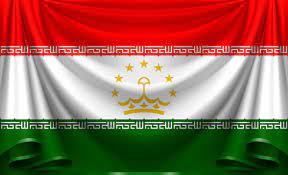UN Expert Urges Immediate Release of Rukhshona Khakimova, Calls for Fair Retrial
On February 5, 2025, the Supreme Court of Tajikistan sentenced Khakimova to eight years in prison on charges of treason under article 305 part 2 (d) of the country’s Criminal Code.

A UN expert has expressed serious concern over the conviction of 31-year-old journalist and human rights defender, Rukhshona Khakimova, urging the Government of Tajikistan to immediately release her and provide a fair retrial consistent with international legal standards.
On February 5, 2025, the Supreme Court of Tajikistan sentenced Khakimova to eight years in prison on charges of treason under article 305 part 2 (d) of the country’s Criminal Code. This verdict was upheld on April 2, 2025, despite widespread concerns regarding the fairness of the trial and the nature of the charges. Khakimova’s case is part of a broader investigation into former senior officials and politicians accused of extremism, espionage, and an attempted coup. The charges against Khakimova are reportedly linked to her involvement in a research project exploring international aid from China to Tajikistan, during which she interviewed two individuals involved in the investigation. These interviews, according to Khakimova’s defense, involved only general questions unrelated to classified information.
Mary Lawlor, the UN Special Rapporteur on the situation of human rights defenders, condemned the trial as falling short of international fair trial standards. "Rukhshona Khakimova’s trial appears to have been more about silencing her for her legitimate human rights journalism than any actual wrongdoing," said Lawlor. “This raises serious concerns about her treatment and the possibility that she is being targeted due to her work as a journalist and a woman human rights defender."
Khakimova’s arrest in July 2024 was marked by serious procedural irregularities, including her detention without a warrant or formal charges. Despite being charged in July, Khakimova and her lawyer were not informed of the specific charges until several months later, which severely undermined her right to a fair defense. Additionally, her lawyer was denied access to case documents, including a copy of the verdict, and was prohibited from meeting with Khakimova after the conviction.
“These irregularities and the lack of transparency in this case are deeply troubling,” Lawlor added. “The secrecy surrounding her case, the classification of the trial, and the imposition of non-disclosure obligations on both Khakimova and her lawyer are all signs of a judicial process that cannot be considered fair or transparent."
Khakimova’s case is seen as part of a broader pattern of repression against journalists and human rights defenders in Tajikistan, where the government has increasingly used legal and extrajudicial means to silence critics and restrict independent reporting. Similar tactics have been employed in other cases involving activists and journalists, often with the aim of stifling public dissent and curbing freedoms of expression and press.
The trial and appeal were both held behind closed doors, preventing public scrutiny and raising questions about the fairness of the legal proceedings. Furthermore, Khakimova’s treatment has been particularly concerning given her status as a mother of two young children. At the time of her conviction, her children were just two and a half years old and nine months old. Despite the clear emotional and psychological toll her incarceration would have on her young family, the court reportedly refused to consider alternative sentences, such as house arrest or other non-custodial measures.
In a further blow to her family, the court also ordered the full seizure of her property, leaving them in a precarious financial situation. This decision has not only deepened the hardship faced by her family but also highlighted the punitive nature of the government’s actions against Khakimova.
“It’s heartbreaking enough that she’s been separated from her young children,” Lawlor said. “But to deny her visits and even basic packages is an inhumane and isolating form of punishment. This treatment sends a chilling message to other women, especially mothers, who might be considering a career in journalism or human rights work.”
In her statement, Lawlor emphasized the importance of a fair and transparent legal process. "If the charges against Khakimova are legitimate, they must be backed by clear evidence and presented in a trial that meets international standards. Anything less would suggest that this is a politically motivated case aimed at silencing dissent and punishing independent journalism."
International human rights organizations, including the UN, have called for Khakimova’s immediate release, arguing that her continued detention is a clear violation of her rights as a journalist and a human rights defender. The case has raised alarms about the shrinking space for independent journalism and human rights activism in Tajikistan, where dissent is increasingly met with harsh legal consequences and state-sponsored repression.
As calls for Khakimova’s release grow louder, human rights defenders are urging the international community to apply pressure on the Tajik government to ensure a fair trial and to guarantee that journalists and human rights defenders can operate freely and without fear of persecution. The international community has repeatedly criticized Tajikistan for its lack of press freedom, its use of arbitrary detention, and the targeting of activists, and this case further underscores the urgent need for greater protections for those working to uphold human rights in the country.
In light of the ongoing concerns, the UN expert has called for the government to grant Rukhshona Khakimova a fair retrial in an open and transparent manner, free from political interference, and in accordance with international human rights standards.
*UN Expert: Mary Lawlor, Special Rapporteur on the situation of human rights defenders
Tags:










